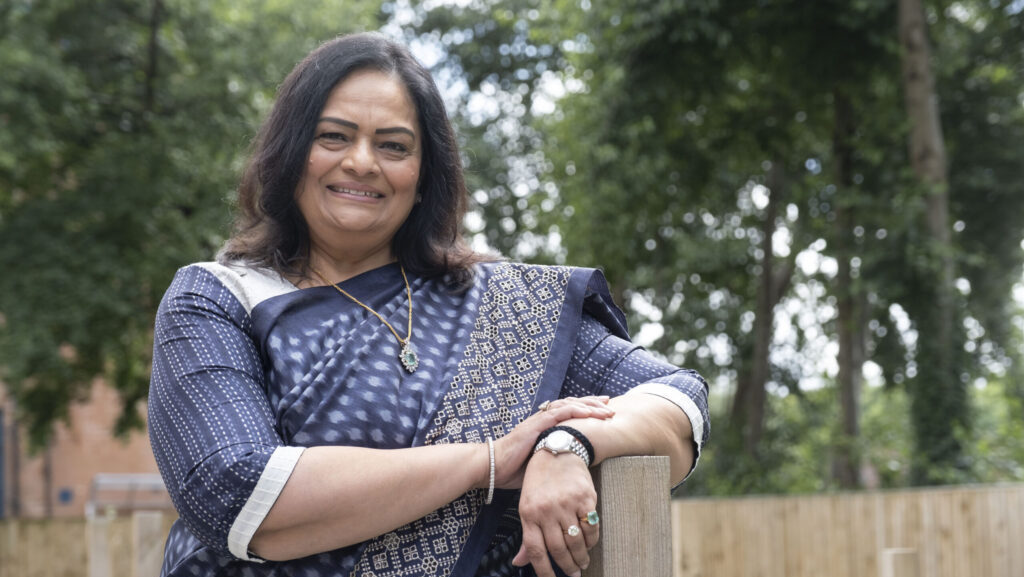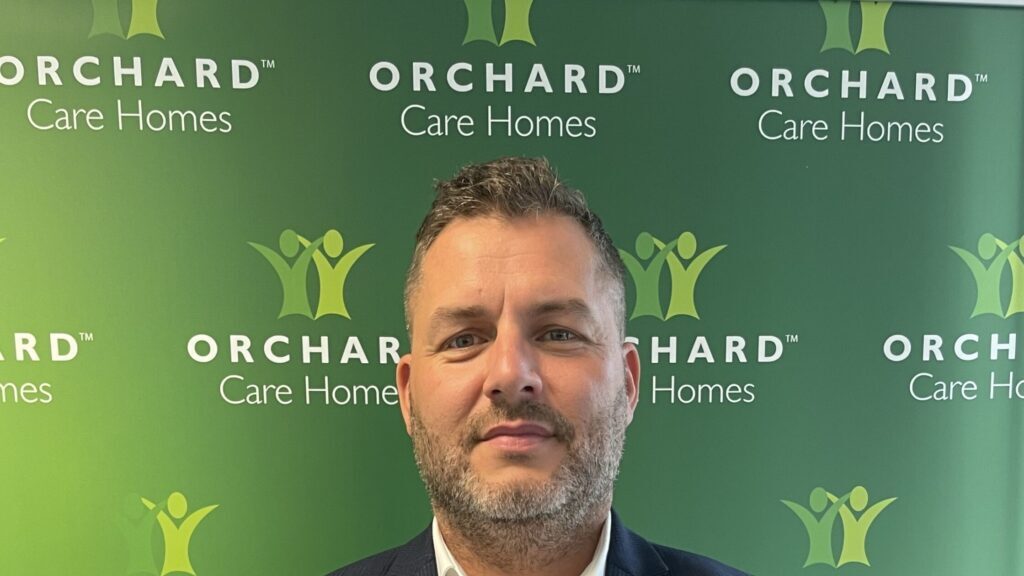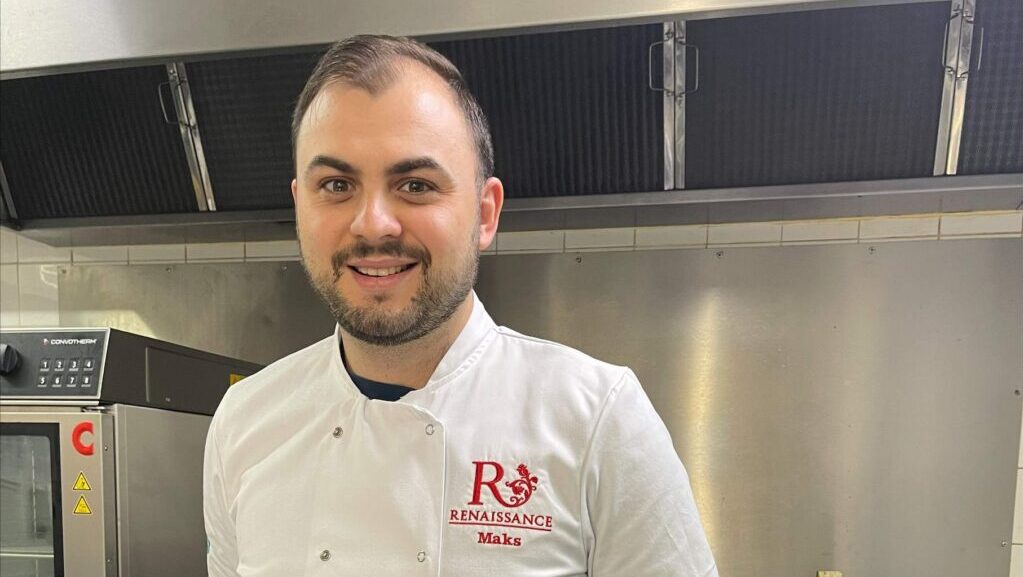A business built from scratch
Charlotte Goddard talks to Oakminster Healthcare founder and chief executive Sunita Poddar about the family business she now runs

Newly married to her structural engineer husband, Sunita Poddar arrived in the UK unable to speak English and with no qualifications. Today, she is the founder and chief executive of a group of five care homes in the Glasgow area, employing more than 350 staff and caring for more than 380 residents. She has achieved this, she says, while consistently being underestimated as a professional woman.
“I came to this county in 1977 as a very young bride,” she says. “It was challenging, as people would not take me seriously, as a young girl in a sari running a business.”
Poddar learned English by working in a grocery which was owned by her brother and sister-in-law. Her entrepreneurial streak was evident from the start, as she moved on to lease a petrol station in 1981 which she ran until 1987, introducing profit-making innovations including a couple of pressure washers and a video club.
In 1984, Poddar took her first steps into the care sector when her father-in-law, a GP, suggested this would be a better fit with family life. She purchased a 12.5% share in a 23-bed care home in Prestwick, Ayrshire. The property was bought and converted in partnership with existing care home owners, friends of her father-in-law.
The next few years saw Poddar immersing herself in the business from the bottom up. “I followed everybody around making sure I understood what happens,” she says. “When you are looking after vulnerable people, you want to make sure you understand their needs and requirements, so instead of being the boss I was a handyman, going to the cash and carry, making sure the laundry is running fine, making sure the kitchen is running fine, just learning the ropes.”
Once Poddar felt comfortable that she understood the business, it was time to strike out on her own and launch what was to become Oakminster Healthcare. “In 1986 my husband and I saw a building run by the Department for Work and Pensions in Kinning Park, and I said I think we should get that and open another care home in Glasgow,” she says. “Our partners looked at the building and said you are mad, you can’t convert this building into a care home, but I believed in it, and we took a risk.”
Paying for the investment with a 100% bank loan, Poddar opened Kinning Park Care Home, a 30-bed home offering nursing, residential, dementia, palliative, end of life, respite and intermediate care. It has its own luxury Italian café, as well as a cinema.
While people are more open-minded than they were back in the 1980s and 1990s, Poddar still finds that she is underestimated. “When you go to big corporate events and meetings, they see you in a sari, they look at you and say ‘what does she know, why is she here?’,” she says. “In the past I had to prove myself every step of the way. There is a better understanding now, in the 80s and 90s there were not that many Indian women in business, but there are people still out there who will judge you.”
Poddar aims to use her position and experience to support other women to succeed in the sector and in business in general. While the care sector workforce is predominantly female, men are disproportionately highly represented in senior management roles (31% of senior management roles are occupied by men, compared with 19% of the workforce in general in England, according to Skills for Care). “I am thankful that I am able to inspire other girls and women,” she says. “I feel that every empowered woman should empower 10 other women, then they have lived their lives. I tell women it’s up to you, you have the power within you, all you need is someone to tell you that you can do it.”
What advice would Poddar give to a young woman starting out today, who aspires to follow in her footsteps and open a care home, or group of homes? “The biggest thing is self-belief,” she states. “If I could do it then, you can do it now. You need to have a career vision and think about what you want to do. If you fail first time don’t give up, keep doing it until you get there. Not being successful the first time doesn’t mean it is failure, it just means you have more experience to do it better the next time.”
Being a leader in the care sector means advocating for yourself and others, she says. “Develop your emotional intelligence, understand your sector and people’s mindsets, how to work with them. It is about clear communication – lead with purpose.”
Oakminster is currently in a stage of consolidation, with no immediate plans to expand further. “We are fortunate with an excellent team that works tirelessly to ensure the wellbeing of our residents and staff remains our priority,” says Poddar. “The care sector is under immense pressure to do ‘more for less’ and our immediate plans are to maintain the status quo.”
Oakminster has recently drastically reduced its use of agency workers, although recruitment and retention remain a challenge for the sector – and for business in general, following Brexit and Covid, says Poddar. “Retention is a high priority for us and we are investing a lot of money in staff training,” she says. “We were using a lot of agency staff as after Covid we lost a lot of team members; people left because they didn’t want to work in the care sector any more. But 90% of our staff are now employed by the company, and that helps to provide the standards of care that we want to deliver. We try to ensure the staff team understands we value them and they feel they have ownership – when that happens 99% of your problems go away.”
Having run care homes since the 1980s, Poddar has seen a lot of changes. One of the biggest is the increase in residents with more complex needs. “In the past people over 65 would just come in and admit themselves because they could no longer live alone; there were not that many assessments,” she says. “Now we are assessing people’s physical and mental needs, and they are coming into care much frailer, it is not just about basic nursing anymore.”
Because of this, the government needs to look at increasing funding for social care and primary care to reduce pressure on the NHS, she believes. “Basic nursing is fine but if people are coming with complex needs the funding needs to come with that. At the moment the government is demanding a five-star service for two-star money, and in fact we are trying to provide seven-star care for two-star money.”
Another change Poddar would like to see is a more productive relationship between home care and care homes. “In my opinion there is huge potential for care homes and care at home to collaborate to meet the needs of people in our communities. I firmly believe this would reduce and prevent hospital admissions,” she says. “However, bureaucracy and regulations prevent us from exploring opportunities, not to mention funding.”
Oakminster Healthcare has two intermediate care units that support patients who are discharged from rehabilitation before they go back to their own home, or have a period of assessment before being transferred to more suitable accommodation such as sheltered housing.
But is the government listening to the care sector? “I am a member of Scottish Care, and Scottish Care has become a voice to talk to the government, but so far I haven’t seen any changes, so I don’t know whether they are listening or not,” says Poddar. “It’s important that people who are working in care homes, in social care, are listened to and their views taken on board, hopefully we can bring positive changes to the sector.”
“I never had a dream to be a big businesswoman, the chief executive of a company employing so many people and providing care to so many people,” she concludes. “It wasn’t a plan, it is just my work that has put me here. I still feel that I haven’t done enough, there is so much more I can do. The journey is still ongoing so let’s see where it takes me.”



